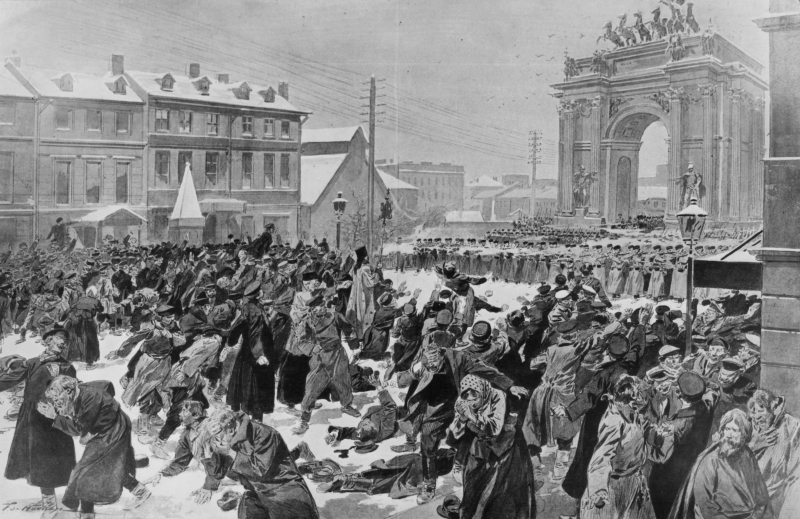“Bloody Sunday” led to his downfall
In St. Petersburg, there were hundreds of thousands of workers by 1905. They endured difficult living conditions, much like everyone else in the nation: 11-hour workdays, no holidays, and a lack of labor unions. Anyone who participated in strikes had the right to be fired by the factory owners.
A later investigation revealed that their boss, a member of a conservative organization, had been motivated by political reasons. This incident occurred in late December 1904 when four workers, members of the Assembly, were fired from the Putilov Ironworks in St. Petersburg. The situation was so tense that even a minor incident could have serious consequences.
As poor and without rights as they were, the workers stood behind their coworkers. Protests agitated the city. Bloody Sunday, January 5, 1905, will live on in history. Father George Gapon led a group of laborers to Saint Petersburg that day to demand the creation of a popular assembly and better working conditions. Unexpectedly, the crown's soldiers started firing upon them, killing over a thousand individuals.
The result was a nationwide strike. The cause of the workers was supported by peasants nationwide, and numerous uprisings occurred. Tension increased as troops continued to repress them. According to historians, Nicholas II's inadequate handling of this circumstance was a contributing factor in his abdication from the throne a few years later.







